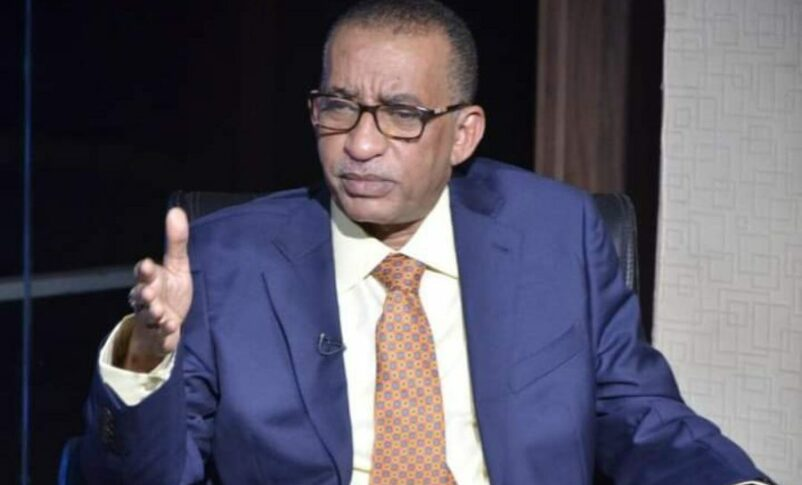Omer al-Digair, head of the Sudanese Congress Party and a leadership member of the coalition of civilian forces ‘Tagadum’, announced their readiness to meet with Lt Gen Abdel Fattah al-Burhan, Chairman of the Sovereign Council and Commander-in-Chief of the Sudanese Army, to discuss the possibility of a ceasefire and an inclusive national dialogue.
This statements come after al-Burhan rejected the Addis Ababa Declaration signed between Tagadum and the Rapid Support Forces (RSF) on Friday, but expressed his willingness to meet the political and civil society leaders in Port Sudan.
Speaking to Sudan Tribune on Saturday, al-Digair stated “We asked to meet al-Burhan and are ready to meet him, as soon as possible, in pursuit of achieving the nation’s interest, which begins with a ceasefire and ending the suffering of displacement, the ugliness of violations, and the catastrophe of destruction.”
He emphasized the need for restraint and de-escalation to pave the way for a lasting peace. “The current situation demands that everyone exercise restraint and refrain from further escalation to achieve victory for our homeland, end the cycle of war, and defeat the rhetoric of those who incite it.”
The political leader stressed that after a ceasefire is achieved, efforts should be focused on creating a conducive environment for a political process that addresses the root causes of the crisis and paves the way for sustainable peace, democratic transformation, and economic development.
He reiterated their hope that the armed forces leadership would respond to their request and work towards a ceasefire, as it is an essential step that cannot be taken without the agreement of both parties.
The Tagadum leadership noted that they had yet to receive an official response from al-Burhan regarding the meeting, despite his call for a meeting with them in Port Sudan.
Al-Digair clarified that the Addis Ababa Declaration signed with the RSF is not a mediation document or a bilateral alliance, but rather a starting point for engaging with various parties to find a solution to the ongoing conflict.
He reiterated that the Addis Ababa Declaration is not a “sacred text but rather a human endeavour that should be critically examined and integrated with the visions of other national parties seeking peace to forge a common strategy to overcome the current predicament”.
The Sudanese Congress Party leader highlighted that ending the crisis and shaping Sudan’s future requires a collective effort involving all Sudanese stakeholders who are committed to peace and democratic transformation.
He revealed that Tagadum sent letters to major political parties and armed groups, including the SPLM-N led by Abdel Aziz al-Hilu, the Sudan Liberation Movement of Abdel Wahid al-Nur, the Sudanese Communist Party, and the Arab Socialist Baath Party, to discuss a unified approach to resolving the conflict.
The Addis Ababa Declaration, signed by Abdallah Hamdok and Mohamed Hamdan Hemetti, commits the paramilitary forces to an immediate and unconditional ceasefire to be negotiated with the army, facilitate the return of displaced people, open humanitarian corridors, release prisoners of war, and cooperate with investigations into violations.

